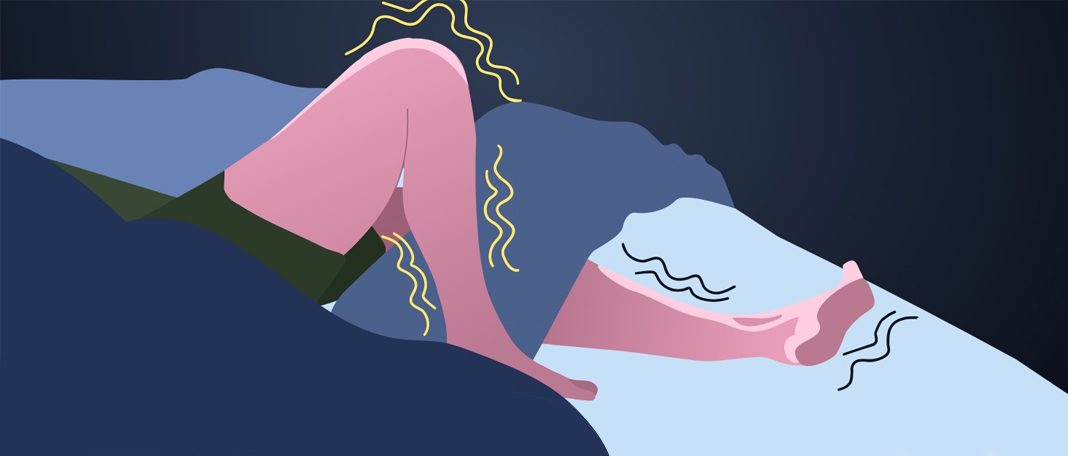Restless legs syndrome is a neurological condition where one frequently experiences this impulse to move their legs, especially throughout the night. One experiences the condition while they are in a position for an extended amount of time. Restless legs syndrome is also known as Willis Ekbom syndrome. It is such that this syndrome is more common among women than in men. According to research, up to 10 percent of the United States population has restless legs syndrome.
Symptoms of Restless legs syndrome
Discomfort
The discomfort that one may experience will not allow staying in a place without any movements. The individual will experience sensations like aching, itching, pulling, burning, and wriggling. These uncomfortable sensations will create the urge to keep the limbs in motion. Restless leg syndrome while sleeping is quite common.
Disturbed sleep
Sleep patterns will be disturbed by the body’s persistent impulse to move while confined to the bed at night. The constant movement will make deep and sound sleep a rare occurrence.
Disturbance in behavior
Due to the syndrome, the person will have sleep deprivation, which will affect how they spend their days. The person who has the syndrome is more prone to experience difficulties or a lack of the necessary sleep that the body and mind need, which can make them irritable and cause mood swings.
Tiredness during the day
The sleep-deprived nights will automatically demand rest the next day. The body requires fuel and rest to function properly. When a person is unable to sleep at night, tiredness and sleepiness are very common during the day.
Causes of restless legs syndrome
Genetic inheritance
As per the studies and the cases reported, restless legs syndrome can pass down to generations. If the parents or the generation before had the syndrome, the children might have the disorder passed to them through their genes.
Depression
Due to the lack of sleep and potential anxiety, people with depression are more likely would develop restless legs syndrome.
Iron deficiency
The root cause of secondary restless legs syndrome, unlike the primary restless legs syndrome can be identified. The reason for the syndrome is mostly hereditary. Iron deficiency is one of the causes of restless leg syndrome.
Diabetes
Diabetes can lead to damage to the nervous system eventually. The potential damage to the nerves can lead to restless legs syndrome, a neurological disorder.
Kidney diseases
Restless legs syndrome is a common condition among people who have chronic kidney disease. Elevated calcium levels or iron deficiencies might make the condition worse, resulting in chronic kidney disease.
What vitamins help with restless leg syndrome?
Since secondary restless legs syndrome is associated with iron deficiency, using iron supplements will aid in the treatment of the condition. Restless legs syndrome may be associated with vitamin D deficiency; Therapy for the deficiency is necessary. Other supplements, including vitamin E and C, may be a good option depending on the person and the needs of the body.
How do you calm down restless legs?
- Cool or hot packs will help with treating the condition.
- Massages and warm baths might help.
- Keeping oneself occupied and distracted.
- Having a workout routine.
- Limiting caffeine intake.
This blog hopes to bring awareness among people and is not a substitute for a doctor. Please visit a doctor immediately if you have any symptoms of restless leg syndrome.

















